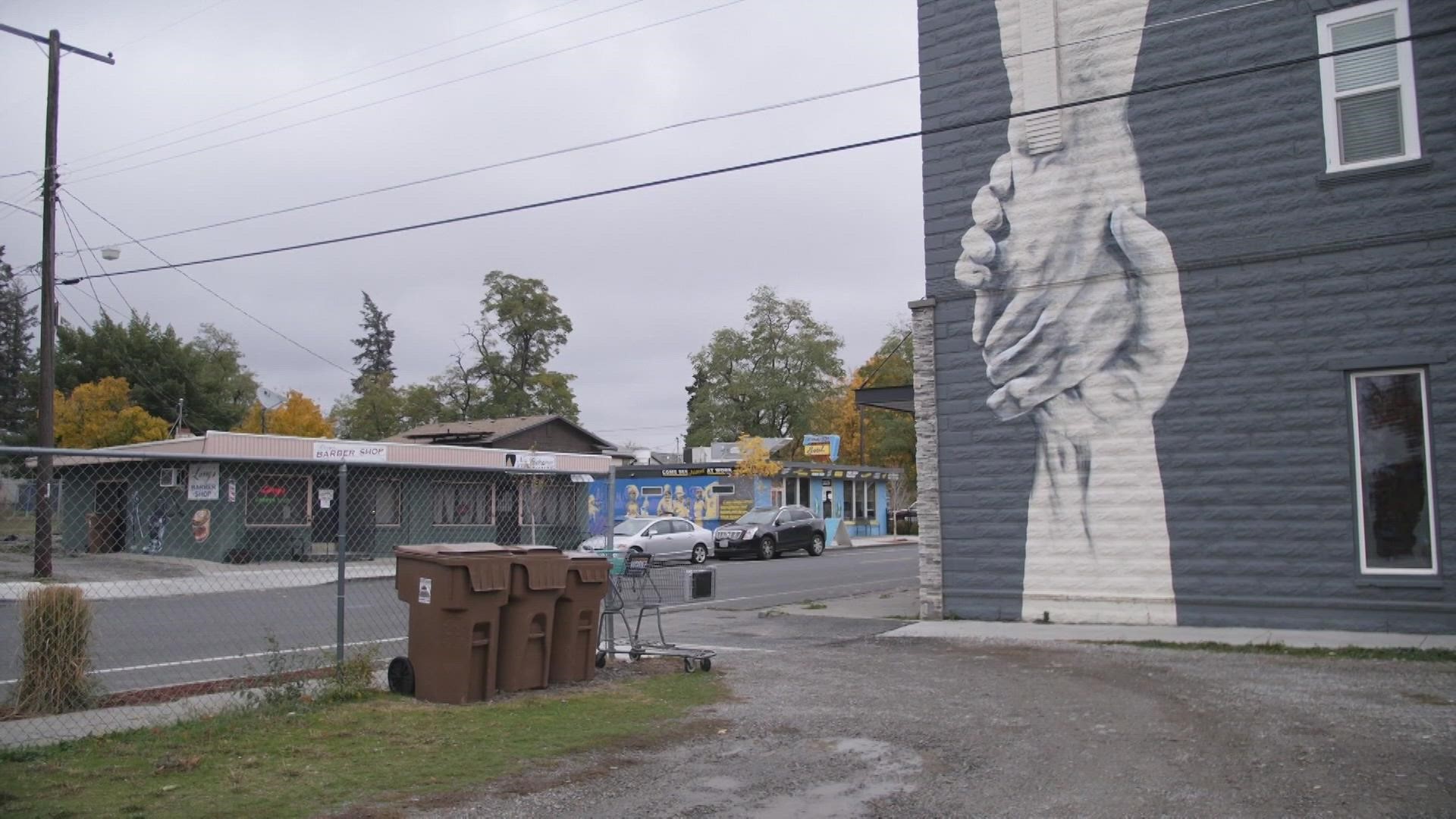SPOKANE, Wash. — Occupying the corner of a busy neighborhood intersection, a brightly colored blue and yellow building stands out amongst the block. Even in the early morning hours when the street is quiet, Michael C. Brown is getting the smokers going, prepping the sides, and getting ready for customers to start funneling into Fresh Soul on Fifth Avenue.
Brown bought the building five years after it had sat vacant for 40 years. It was part of his plan to resurrect East Central, a neighborhood he grew up in and stayed in for 63 years.
"This is my passion," Brown said.
Brown remembers growing up in East Central in the '60s and '70s as a time of flourishing community. He described it as a small-town feel, where everybody knew and cared about each other.
"If I messed up over here, that family had the right to get ahold of me. So, it takes a village to raise a child, and this was a village," Brown said.
A village whose history is largely forgotten. Brown says most of the houses on the stretch from his store to Liberty Park were Black-owned. One of those houses is where Betsy Wilkerson grew up.
Brown and Wilkerson attended the same middle school in the early 70s.
"Michael will tell you. We grew up in church together. He was the troublemaker, and I was the good one," Wilkerson said.
They were a couple of kids living in Spokane's lone black neighborhood. Wilkerson said due to redlining and socioeconomic issues in the 60s, East Central was the only neighborhood where African American people could afford to own homes.
She said the neighborhood was home to them, but a home that was split in half when Interstate 90 was built. It was a step forward for Spokane, but a step backward for East Central.
"We're the forgotten neighborhood," Brown said.
But Betsy and Michael remember. Fifth Avenue is the last of the Black community fighting to hold onto that history. The street is lined with black-owned businesses, including Impanda, Lotus, New Beginnings Beauty Shop, the Carl Maxey Center, Fresh Soul, SERA Youth, and Larry's Barbershop, the oldest black-owned barbershop in Spokane.
That history still stands from the years East Central was the only area in Spokane that welcomed the Black community.
"This was our Black bubble... especially when we were in the 60s when there were so few places that we could go and gather. The church was it," Wilkerson said. "Where Black churches are is where Black people will live."
That's why Wilkerson's mom moved her family to East Central in 1963. Betsy was seven years old when her single mom rode a train across the country. Once she arrived, Wilkerson said her mom opened a church and became Spokane's first Black woman to be a pastor.
Now, Wilkerson is following in her mom's footsteps. As the only sitting Spokane City Councilmember, representing East Central, her legacy legislation is the East Fifth Avenue Initiative, focused on restoring the East Central neighborhood.
"People have labeled East Central crime-ridden, low-income. We carried that label for so long," she said.
The revitalization initiative is Wilkerson's way of fighting for her community's history. While Brown's job training program at Fresh Soul gives neighborhood teens a place to start.
"If we can all just come together, it's a beginning and if we can all just stay together, we have progress. But if we can work together, we've got success," Brown said.

